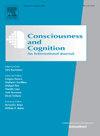Long-term exercise training reduced the sound-induced flash illusion in multisensory illusions owing to the cerebellum
IF 2
3区 心理学
Q2 PSYCHOLOGY, EXPERIMENTAL
引用次数: 0
Abstract
Sound-induced flash illusion (SiFI) is an auditory-dominant multisensory illusion that can be used to assess multisensory integration. Although previous studies have shown that one-time intervention exercise training does not significantly affect SiFI, the long-term improvement of SiFI with exercise training remains controversial. In the present study, the classical SiFI paradigm was used to investigate the effects of long-term exercise training on the SiFI. Differences in SiFI among the skill exercise, physical exercise, and control groups were also assessed. The results showed that SiFI was lower in both the skill group and the physical group than in the control group (Experiment 1), and the skill group had a lower SiFI than the control group because the skill group had a finer temporal binding window of multisensory integration (Experiment 2). In addition, previous studies have shown that brain plasticity in athletes of open skill exercises is predominantly in the cerebellum and that exercise skill learning is associated with cerebellar neuroplasticity. Therefore, we used transcranial direct current stimulation (tDCS) to modulate the cerebellum to examine whether the cerebellum was involved in SiFI (Experiment 3). The results showed that the cerebellum was involved in the SiFI, and the reduction in the SiFI in the skill group was due to the increase in developed cerebellar function resulting from long-term skill training. These results suggest that long-term skill exercise training is effective at preventing SiFI, and the present study provides empirical support for intervention training in the area of multisensory integration.
由于小脑的作用,长期运动训练减少了多感觉错觉中声音诱发的闪光错觉
声音诱发闪光错觉(SiFI)是一种听觉主导的多感觉错觉,可用于评估多感觉整合。虽然先前的研究表明,一次性干预运动训练对SiFI没有显著影响,但运动训练对SiFI的长期改善仍存在争议。在本研究中,采用经典的SiFI范式来研究长期运动训练对SiFI的影响。还评估了技能锻炼组、体育锻炼组和对照组之间SiFI的差异。结果表明,技能组和体能组的SiFI值均低于对照组(实验1),且技能组的SiFI值低于对照组是因为技能组的多感觉统合时间绑定窗口更细(实验2)。以往的研究表明,开放式技能训练运动员的大脑可塑性主要集中在小脑,运动技能学习与小脑神经可塑性有关。因此,我们采用经颅直流电刺激(tDCS)调节小脑来检测小脑是否参与了SiFI(实验3)。结果表明,小脑参与了SiFI,技能组SiFI的降低是由于长期技能训练导致小脑功能发达增加所致。这些结果表明,长期技能训练对SiFI的预防是有效的,本研究为多感觉统合领域的干预训练提供了实证支持。
本文章由计算机程序翻译,如有差异,请以英文原文为准。
求助全文
约1分钟内获得全文
求助全文
来源期刊

Consciousness and Cognition
PSYCHOLOGY, EXPERIMENTAL-
CiteScore
4.30
自引率
8.30%
发文量
123
期刊介绍:
Consciousness and Cognition: An International Journal provides a forum for a natural-science approach to the issues of consciousness, voluntary control, and self. The journal features empirical research (in the form of regular articles and short reports) and theoretical articles. Integrative theoretical and critical literature reviews, and tutorial reviews are also published. The journal aims to be both scientifically rigorous and open to novel contributions.
 求助内容:
求助内容: 应助结果提醒方式:
应助结果提醒方式:


